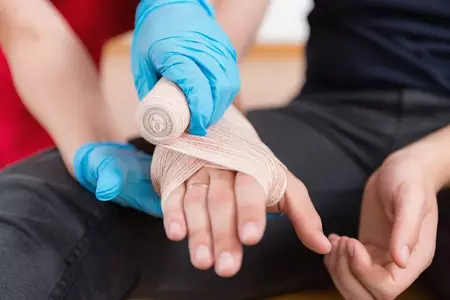Basic First Aid Training


Our Basic First Aid training program is designed to teach individuals the fundamental principles and skills needed to provide initial care and assistance in medical emergencies and everyday injuries. It focuses on equipping participants with the knowledge and techniques to assess the situation, stabilize the injured person, and prevent further harm until professional medical help arrives. Our Basic First Aid training course covers topics such as assessing the scene of an emergency, performing CPR, controlling bleeding, treating burns, managing fractures and sprains, responding to choking incidents, and recognizing signs of common medical emergencies. The goal of the Basic First Aid training course is to empower individuals to confidently and effectively respond to injuries and medical emergencies, promoting the well-being and safety of themselves and others.
Basic First Aid Training consists of a comprehensive 8 Hour course that covers a range of essential topics and skills necessary to provide immediate care and assistance in medical emergencies and everyday injuries, such as:
The workplace first-aid course involves 8 hours of learning and is delivered by a trainer over one full classroom-based day.
The Workplace First Aid course can be conducted either at your own site, our training center in Derry, or alternatively, we can arrange a local venue for you anywhere in Northern Ireland.
Basic first aid training is beneficial for a wide range of individuals, as it equips them with essential skills to respond effectively in emergency situations. Some of the individuals who can benefit from basic first aid training include:
Basic first aid training is important because it provides individuals with the knowledge and skills to respond immediately in emergencies, potentially saving lives, preventing further injury, and empowering both themselves and their communities. It enables prompt and effective care, reduces the severity of injuries, promotes community safety, and prepares individuals to handle everyday medical incidents, fostering a safer and more prepared environment for all.